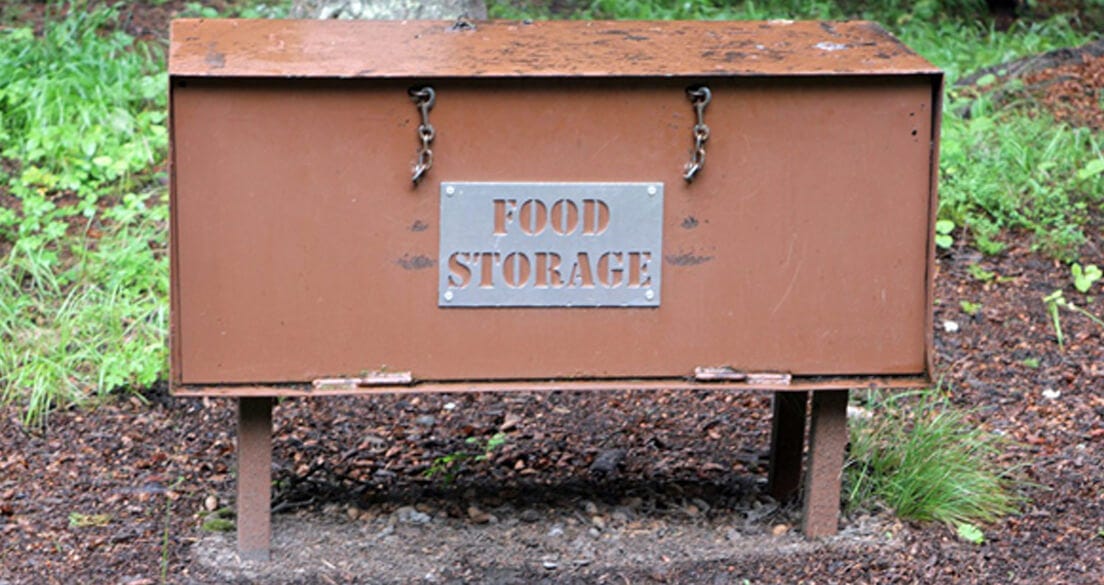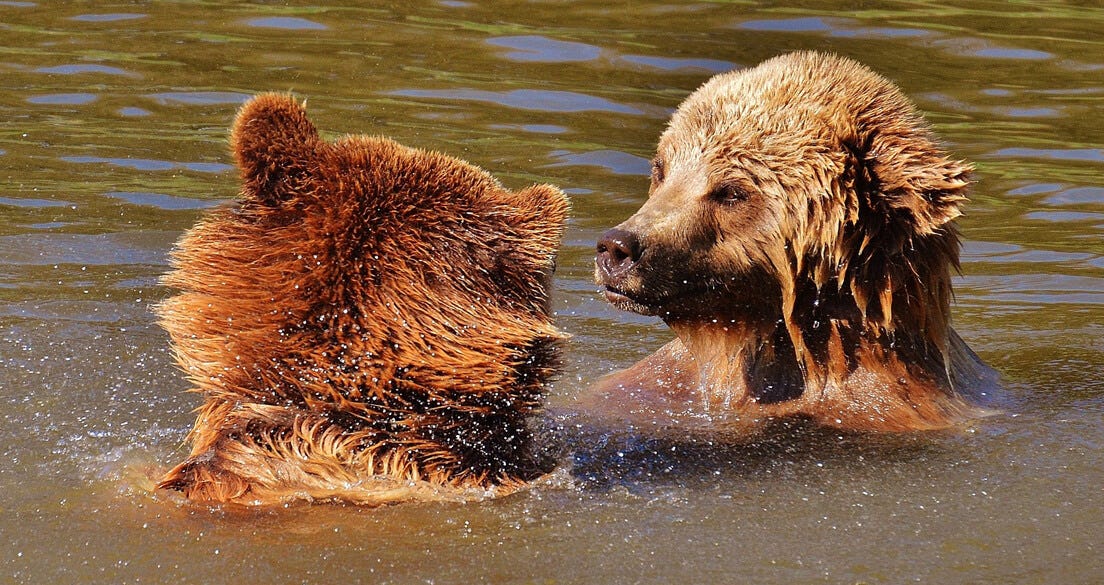
Seeing a bear is something special, it’s like seeing a unicorn. Magical and exciting, but you should remember that they’re not teddy bears. They’re not there to cuddle; they’re probably there because they smelled your food. Bacon and eggs taste even better when you don’t have to cook them yourself, right? However for a bear, it’s not just what people eat that they’re interested in.
What does a bear consider food?
Anything with a scent could attract a bear. This includes canned goods, bottles, soaps, sunscreen, bubble gum, all toiletries like lip gloss, lotion, bug repellent and deodorant, along with fuel, pet food, ice chests (coolers), garbage, BBQ grease, oil, pots, pans, dishes and wastewater from cooking or doing dishes. If you’re in the backcountry, remember to cook 100 meters (yards) away from where you’ll be sleeping and use a bear canister or bear bag to protect your food. If you’re car camping in bear country, the campsite should have a bear proof locker on site. Put anything with a scent in it when not in use, not in your car.


Bears can be scary, but they usually aren’t a threat to humans. While hiking through the forest, be noisy. Sing, talk or wear a bell so you don’t surprise them. If you come across a bear, be quiet, slowly back away, and don’t run. Give them their space, photograph or watch them from a distance. The bear should leave you alone. If the bear is aware of you, they may stand on their back legs to to get a better look at you. Talk to them calmly and wave your arms slowly. You want them to know you’re a person and not their next meal. Avoid eye contact, but keep an eye on what it does.
Never come between a mama bear and her cubs! If you thought your mother was protective when you started dating on Tinder, you don’t want to see how aggressive a mama bear can be.
If it becomes confrontational, stand your ground. Don’t turn your back on the bear and never run. Try to look as big as possible, raise your arms over your head. If you have children, pick them up immediately and put them on your shoulders if you can. The time to be quiet is over, yell at the bear and make a lot of noise. You want to make the bear think you’re not worth the effort to attack you.
If it becomes confrontational, stand your ground. Don’t turn your back on the bear and never run. Try to look as big as possible, raise your arms over your head. If you have children, pick them up immediately and put them on your shoulders if you can. The time to be quiet is over, yell at the bear and make a lot of noise. You want to make the bear think you’re not worth the effort to attack you.


- Keep your distance
- Don’t surprise a bear
- Be noticeable
- Identify Yourself
- Stay Calm
- Pick up small children immediately
- Stay in Groups
- Make yourself look bigger
- Do Not allow the bear to access your food
- Keep your pack on
- Leave the area
Most of the time while you’re camping, you don’t need to worry about bear safety, but if you’re in bear country, bear spray can be essential. Only use bear spray if the bear is approaching you. Check out this video from the US National Park Service to see how to properly use bear spray.